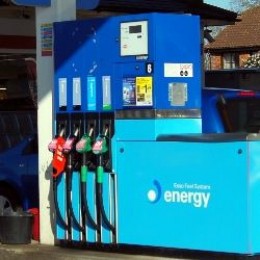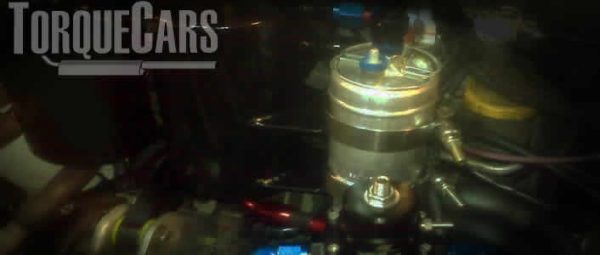All you need to know about fuel
Fuel, the most important thing to keep your car on the go. But what is it? How does it work?
And how many fuel types are out there? We will explore all of these and determine which is best for different use cases.

Even when it comes to pump fuels you have a choice of octane and the correct fuel choice will benefit your engine and cars performance.
Every fuel maker has a different formulation.
You don't just have the base fuel, there are many additives to help the fuel remain stable over time, to clean the engine and other additives, but we are not going into that here.
Instead we will focus on the main types of fuel, from the original Leaded fuel to full race spec fuels.
Leaded fuel
- Leaded Fuel - a brief History
The early 20th century, Automotive manufacturers were looking for an additive that would reduce engine knock. Engine knock is what happens when fuel burns unevenly in each cylinder, producing a knocking noise. It has the potential to be very damaging to an engine’s cylinder walls and pistons.
Manufacturers discovered that Lead offered more octane to the fuel, avoiding engine knock.
Due to its low production cost at the time, it was preferred over hydrocarbons and ethanol solutions.
It also protected engine valves and valve seats from wearing, acting as a barrier from the small welds that form between their pairing surfaces.
- Why was Leaded fuel banned?
Dangers of using lead were soon realised after five workers at the Standard Oil factory died, with a further thirty-five hospitalized with Lead poisoning.
Its use in petrol was continued from the 1920’s all the way to the 1960’s before vast amounts of health research determined the effects low-level lead exposure had on the body.
Including children developing behavioral issues, learning disabilities, low IQs, and nerve damage. Adults also suffered from hypertension and cardiovascular diseases.
Introduction of catalytic converters lead the way (pardon the pun) to a phase out of this toxic additive in the 1970’s. With its ultimate ban in the 1990’s for most countries, and the UK eventually in 2000.
Specialist 2 stroke engine fuel
- 2 Stroke Fuel
That distinctive motorcycle sound that blasts your ear drums from a repetitive clunky engine noise – that’s probably a two-stroke.
A two-stroke engine completes the full combustion cycle in just two piston strokes, as opposed to a common four stroke engine.
- Why is Oil added to 2 stroke engines?
Because a two stroke does not have a built-in oil reservoir, the owner would need to mix oil into the fuel at a specific ratio to make sure the engine receives plenty of lubrication for its fast-moving parts. All of which are housed within the combustion chamber.
Typically, a mix of 2-4% oil is added to the fuel used, however make sure to check your vehicles instruction manual before mixing.
BioFuels and Blended gasoline/petrol
- E5 and E10 Petrol, what is it?
With the introduction of E10 petrol, it is now more important to check if your car can use it. You may be thinking, what are these ‘E’ numbers in my petrol?
E10 is simply a 10% Bioethanol (or Ethanol) content within the fuel. This was introduced worldwide, most notably in the US as amendments to the “Clean Air Act” in the 1990’s. Requiring a minimum amount of oxygenated gasoline (2% by weight). This was to help the fuel combust more effectively and produce less exhaust emissions.
Originally E5 was used, but to combat climate change and saving an estimate of 750,000 tonnes of CO2 per year in the UK, the decision to switch to 10% in 2021 was made.
- Can my car use E10?
Now to check if your vehicle can use E10 is simple. If your car is produced after 2011, then it is. Older cars may still be able to be filled with E10, just check the government list here.
- I used E10 by mistake, will it damage my older car?
Do not panic. Only if left for a long period will E10 start to wear away seals, plastics, and metals.
Therefore, if you do accidentally fill up on E10, for the short term, your older car won’t be affected. Just make sure to fill up on E5 at the earliest opportunity.
Much depends on the seals and rubber lines used, E10 tends to degrade HNBR/Nitrile rubber seals and components, this is gradual so you will get away with limited exposure, but eventually, these parts will fail.
Ethanol can also cause swelling in some of the Elastomers used in components, which can result in eventual sealing failures, splits and blockages.
- E85, what is it?
On the other end of the spectrum to E5 and E10, there’s E85. It is as the name suggests, 85% Ethanol. Usually produced from crops, this mixture is popular in warmer climates due to a lower heating value than traditional petrol. Making a cars engine harder to start in cooler weather, it is not used at all within the UK.
- Which engines can use it?
The US, Brazil and Australia utilise this to great advantage in their “Flex Fuel” cars. These cars have a special ECU analysing the amount of Ethanol that is in the fuel, in real time, and adjusts timing, spark, and flow rate accordingly.
- Best use cases for E85
E85 also offers greater thermal efficiency and can reach an engines optimum power, which is why it is popular in motorsport settings.
The only real disadvantage is the lower rate of energy stored per gallon. Meaning a car running on E85 will have a worse mpg figure than typical E10 petrol.
The mix of fuels in these “Flex Fuel” cars highlights the importance of clean fuel injectors.
Due to the more volume of fuel being pumped through in E85, a clean injector reduces the possibility of a car running “lean”, or less air to fuel ratio than desired, and overall underpowering.
- Race fuel – why Lead is used?
Contrary to the health dangers of Lead in fuel, it has been (and is still) used today in racing fuels. Due to the incredible octane performance of Lead, it can produce 120 octane levels, with an unleaded equivalent producing 100 octane.
- Why is high octane good?
Octane is the number to determine how much compression the fuel can accept before ignition. The higher this number, the less likely the petrol will ignite at the wrong time, which can cause damage to your engine.
Therefore, performance race engines are produced with the tightest tolerances, to ensure it produces the most power for the lightest material weight. These engines are designed from the ground up to run on high-octane fuel.
Race Fuels: Methanol
- Methanol, is it a viable option too?
As a fuel of choice for many racing teams over recent decades. Its lower cost, cleaner burning and ‘cooler’ burning temperature are all benefits over traditional petrol.
But best of all it produces immense power. With a higher octane, methanol can squeeze the most power at the top of the rev range.
However, you would need to burn three times as much in the same engine stroke. Therefore, an extremely high flow injector is needed for these racing setups.
When using three times the amount of fuel in the cylinder, the calculated output is an improvement of 60% energy produced over traditional petrol.
The downside of course mpg figures are halved, causing plenty of pit stops, or the need for a much larger fuel tank.

Race Fuels: Nitromethane
- Nitromethane – the best of the bunch, but at a cost
Now to get to the more insane power output from fuels, throw some Nitrous Oxide into the mix - Nitromethane is exactly this.
This combination means during combustion there is more oxygen to burn for each explosion. Although less energy density than typical fuel, you can burn more of it in a cylinder.
Nitrous oxide releases Nitrogen and Oxygen as it burns, so you essential have a fuel that comes with extra air! A big plus if you are looking for more power.
However you need to use much more fuel to achieve the extra power.
With an air-fuel ratio eight times less than petrol at 1.7:1, you can cram eight times more into the cylinders and still achieve combustion.
A typical 2.5x power increase can be achieved by simply switching to Nitromethane, which is truly staggering.
The downside is that it does not fully burn in the cylinder, causing Nitromethane to be pumped through to the exhausts. In drag cars especially, this can be a flame inducing spectacle!
We shouldn't really have to explain that this is not good for catalysts so this is very much an off road/motorsport application fuel in most areas and regions. Plus there is the minor fact that the emissions are much more toxic than regular gasolene.
Plus of course, it causes the vehicle to be extremely thirsty, but if you are running Nitromethane you are not going to worry about miles per gallon, just the amount of SMILES per gallon you'll get.
Most cars running Nitromethane are initially started up on Ethanol, or regular gasoline/petrol because Nitromethane is not great for cold engine startups. Interestingly Nitromethane will generally not ignite or burn unless it is warmed up first.
Please Check out my YouTube channel, we're regularly adding new content...
PLEASE HELP: I NEED YOUR DONATIONS TO COVER THE COSTS OF RUNNING THIS SITE AND KEEP IT RUNNING. I do not charge you to access this website and it saves most TorqueCars readers $100's each year - but we are NON PROFIT and not even covering our costs. To keep us running PLEASE Donate here
If you liked this page please share it with your friends, drop a link to it in your favourite forum or use the bookmarking options to save it to your social media profile.
Feedback - What do You Think?
Please use our forums if you wish to ask a tuning question, and please note we do not sell parts or services, we are just an online magazine.
Help us improve, leave a suggestion or tip
Please watch this video and subscribe to my YouTube channel.
One Response to “Fuel Guide”

 Click to accept YouTube Cookies & Play.
Click to accept YouTube Cookies & Play.
Info for Waynne.. Just bought the latest Suzuki Ignis 1197cc this car was filled with Texaco 95 Octane E10 petrol. on driving it out of showroom couldn’t believe how sluggish this car performed it gave poor MPG and only after finding out that this version has compression ratio of 13 to 1 did i understand the problem after using half a tank of this crap fuel did i go to my usueal Shell 99 octane to which this car took off like a rocket the manufacturers say use 95 octane but this car does NOT perform well on this fuel and every mechanic knows that with higher compression engines a higher octane fuel is more beneficial. and for the record the MPG figures are now superb at least 7/8 mpg better with heavy foot on accelerator
Previous car was Suzuki Swift 2013 also went better with shell 99 octane
that had compression ratio of 12 to 1 with 1242 cc engine Shell was best of all fuels on offer for performance and MPG IMHO P.S i’ve been driving since 1960
motorbikes included and i know what i am talking about…
regards
Vincent